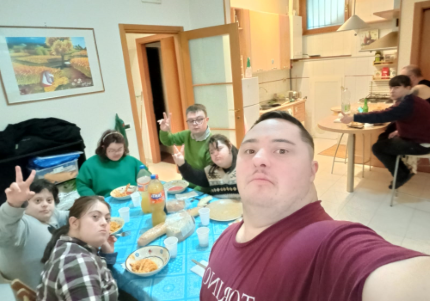A good practice for the future: “Università della Vita Indipendente”, an AIPD project in Potenza

“Università della Vita Indipendente" is a project carried out by the Italian Association of People with Down Syndrome (AIPD) that allowed 28 people with disabilities (specifically people with Down syndrome and autism spectrum disorders) to test their ability for self-determination and management of daily life activities during a co-housing experience in Potenza.
Carmela De Vivo, president of FISH Basilicata (Italian Federation for the Rights of People with Disabilities and Families), emphasized the importance of these activities: "People with disabilities are no longer passive recipients of services, but protagonists of their own lives, with the transition to the human rights model, the introduction of personalized and participatory projects, and the coordination between institutions marking a profound transformation. Now the challenge is to make these principles concrete and stable."
Inside a specially rented apartment, participants were able to challenge themselves to develop practical and relational skills, thanks also to the support of operators and the Associations involved. In a context of cohabitation and social relationships, they experienced moments of real life, such as home management, personal care, interpersonal relationships, and greater awareness and responsibility in daily living. In this way, they acquired practical tools to live independently, exercise their rights, and participate in their community.
Rosa Padula, clinical psychologist and Lucanian Autism Association (ALA) operator, stated that the project demonstrated how people with disabilities can acquire real skills to live as autonomous adults if structured and inclusive contexts are provided. Projects like "Università della Vita Indipendente" offer concrete opportunities for growth and allow overcoming prejudices about people with disabilities, showing that autonomy is a gradual process that requires time, continuity, and professional support.
The first autonomy courses using the AIPD methodology began in 1989 and continue to demonstrate today, with their beneficial and concrete results, how these projects cannot be considered temporary experiments, but must become structural and permanent interventions, to guarantee the necessary conditions for fully living one's human rights and citizenship.
Federica Labella, socio-pedagogical educator, confirmed: "The new regulations of recent years call us to build inclusive communities, where everyone can choose and live their own life project. It's not an act of kindness: it's justice, it's democracy."

